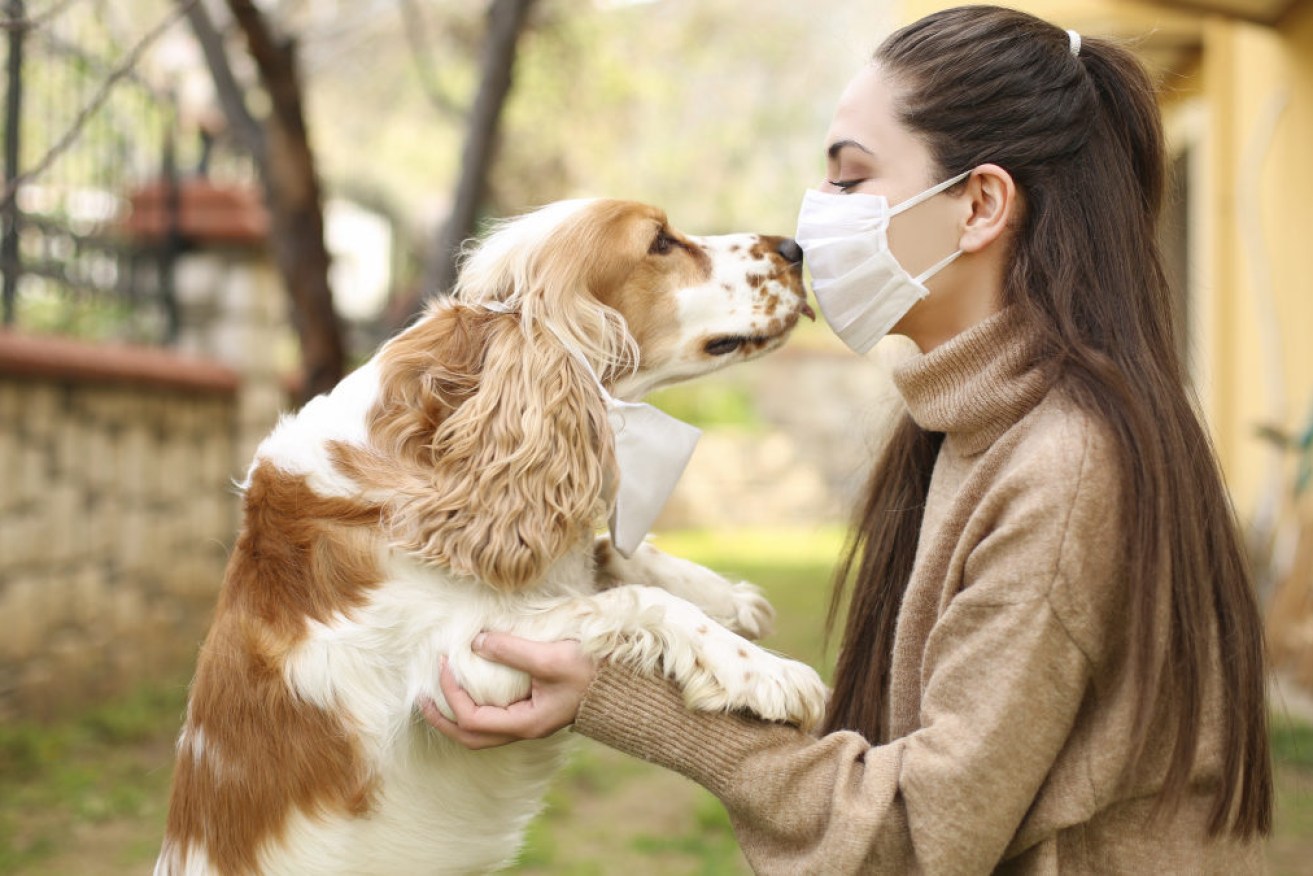Pets are for life, not just a pandemic: A vet’s advice on how to care for your new pet

Vets are already seeing the impact of the pandemic on pets. Photo: Getty
The COVID-19 pandemic came out of nowhere and people, pets and vets had to adapt very quickly without any planning.
At the start of the pandemic people felt isolated in their homes.
Understandably, many of them turned to puppies and kittens for companionship.
People who had never owned a pet before were suddenly proud parents of a loving, furry being who brought joy into their lives during the never-ending Groundhog Day lockdowns of Melbourne and elsewhere.

Some new pet owners had been thinking about getting a pet for a while. Photo: Getty
Some new owners had been thinking about getting a pet for a while. Others may have made a more impulsive, but positive decision.
The animal shelters ran out of pets to rehome.
The purchase price of puppies and kittens from breeders and suppliers significantly increased due to the high demand and difficulty in supply.
We vets also had to face new challenges. The most important thing for us was to keep pets healthy without putting owners or veterinary staff at risk.
This meant the owner handing the beloved pet to a stranger to take into the veterinary clinic and speak to their vet over the phone.
Many owners were very anxious about the process and not always understanding.
For the veterinary staff it meant trying to conduct telephone consultations, not being able to judge owner reactions and not always being sure if the owner understood.
It placed a huge burden on the staff as normally the owner is present and nursing staff aren’t required to be present the entire time.
Staff shortages when staff did the right thing and isolated following a COVID-19 test added to the challenge, as did wearing masks at all times.

Keeping pets healthy without putting owners or veterinary staff at risk posed new challenges during the pandemic. Photo: Shutterstock
So, what are the concerns and possible consequences of this puppy and kitten boom?
During lockdown it was very difficult for normal puppy socialisation classes to take place.
Puppies learn to socialise between six and 14 weeks of age. This is a critical time for them to learn to live and accept others besides the people and pets in their home environment.
Without being able to learn to socialise, the concern is that we are going to have fearful or aggressive dogs in the future, which has a huge impact on their welfare moving forwards into a COVID-free future.
Not only had these pets not been socialised with other animals, they also have not been socialised with people.
Already I am seeing the impact of that. Young six to eight-month-old dogs never seeing anyone else but their human family are scared and fearful in a manner that can be dangerous to visitors.
Now that we are having visitors back in our homes, be mindful that your pet may find this overwhelming – especially with children as they can be very exuberant and noisy.
Let your pet approach the visitor when they are ready, not the other way around.
If they don’t want to be in the room, leave them be.
Never leave a child in the room unattended with a pet. Your pet will gradually get used to new people. Some pets will love the intrusion.
But what is going to happen with people returning to the workplace, sport and social events? Two things are of concern to vets.

If you are returning to work, think about your pet – make sure you start gradually leaving it alone for short, then longer periods. Photo: iStock
Firstly, stressed, lonely pets can have separation anxiety.
This is very detrimental to their welfare and in this state they can be extremely destructive to their environment, causing damage to the environment and themselves.
Secondly, are we going to see those empty animal shelters overflowing worse than before as people realise pets are wonderful but time consuming and costly?
If you are returning to work, think about your pet – make sure you start gradually leaving it alone for short, then longer periods.
Don’t make a fuss of them as you leave and return as this makes the process more stressful for them. Make sure you make time every day for playtime or a walk.
If you feel your pet is not adapting well to being left alone – such as being overly excited to see you, toileting abnormally or being destructive – it is best to seek veterinary advice as soon as possible.
The longer you leave it, the harder it is to change. Don’t feel it is your fault.
Find a vet you trust and work with well, and as we emerge into a more normal environment, bear in mind that like other medical organisations, a vet clinic may return to normal operations more slowly than you, and your vets and nurses may still be facing the challenges mentioned above.
Pets are a great source of joy, love and help us to maintain a healthy lifestyle, but we have obligations to be good and caring companions to them too.
Think of the old saying – a pet isn’t just for a pandemic but for life!
This article was first published on Pursuit. Read the original article.








